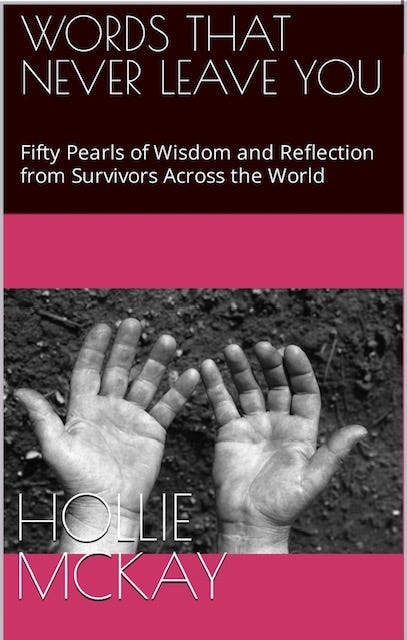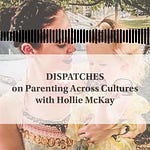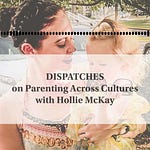TRANSCRIPT. PODCAST FEATURING HOLLIE MCKAY & DENNIS SANTIAGO. (Please excuse typos, edited for clarity)
DS: We're back with “Words that Never Leave You” by Hollie McKay, featuring “Fifty Pearls of Wisdom and Reflection from Survivors Across the World.”… Only a pile of ashes is given to the family members. We cannot be silent. What's this all about, Hollie?
HM: So these very striking words were said to me by a man I interviewed by the name of Gao Yixi, and he endured deeply scarring oppression under the Chinese Communist Party when he lived there. He spent years watching friends and family and other people that he knew and loved slowly disappear, and soon it became very clear that many had fallen victim to the illicit and incredibly barbaric, involuntary state sanctioned organ harvesting. Yet he was unable to stand idle.
Gao took it upon himself to secretly record footage of undercover interviews at major military hospitals in mainland China. And then he turned those very important videos over to an investigating tribunal as evidence for the illegal organ transplants. It is obviously very scarring, the things that he saw and that he witnessed. A big part of the important videos that he recorded was seeing these very healthy people dragged away, their organs harvested by their own government. And then, it was just a pile of ashes returned to their family members. We cannot be silent, he stressed. That is a very striking image, I think, and it really speaks to the fact that we can't be silent about things that we care most about, and that being a vessel for those less fortunate than we are is incredibly important to our ability to progress as human beings.
We should not be silent – I think that speaks to a much broader picture about many abuses that happen in the world.
DS: And that is what you've been doing. You've been speaking about abuses that happen in the world for a very long time now. I mean, ever since I've known you and you know, so this is another case of that. How does that affect the continuation of your mission in terms of telling these kinds of stories? And what do you think that means in terms of, should other people be thinking about maybe telling some of those stories too?
HM: I think awareness is always a really big thing. It's that first step to change. We need that awareness to bring about the change. As journalists, our job isn't to change policy or the law – but to be another individual that voice, a vessel for others. What we can do is create some awareness so that the people in the right positions can do the right thing and act and to bring awareness to our broader communities. I think that's really an important function of what journalism is. We have to get out of the way of the hubris and not try to be more than we are, but really remember that telling the story is the crux of what this job is all about.
DS: There you go. And well, final question. How many times has telling the story, in your experience, warmed your heart with the good that it does and how many times have you had heartbreak because it didn't work?
HM: I think it's much more heartbreaking than filled with goodness. I think it's more frustrating than it is satisfying or relishing in the feeling that you have achieved something. You often feel like a failure more than you feel like anything has really changed. If you look at the state of the world and things that are still happening, and the things that people get away with… these awful things continue to happen. So, it is not as especially rewarding job in the foreign space to be to be brutally honest with you. But we have to keep going because there are people that rely on us as vessels. Unfortunately, change doesn't happen as much as I wish that it did. But again, it is about being in this for the long haul.
DS: There you go. Well, thank you, Hollie. A very insightful sharing of thoughts around a very poignant quote. Thank you very much. And we'll talk to you again soon.
HM: Thank you, Dennis.
PURCHASE YOUR COPY OF “WORDS THAT NEVER LEAVE YOU” TO READ MORE REFLECTIONS AND ANECDOTES
** Short read of meaningful lessons gleaned from the ordinary forced to become extraordinary
For speaking queries please contact meta@metaspeakers.org
I am also available for a select number of private coaching sessions for those wishing to write a book or venture into the foreign journalism space. Please contact directly for rates hollie@holliemckay.com
PLEASE CONSIDER A PAID SUBSCRIPTION TO THIS SUBSTACK TO KEEP INDEPENDENT JOURNALISM ALIVE.














Share this post